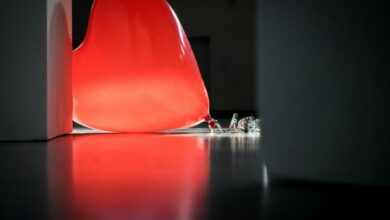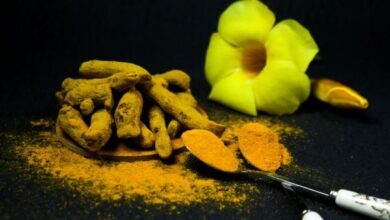Easy ways for summer rejuvenation

Beauty basics with SHAHNAZ HUSAIN
 Summer is here with all its glory. There’s nothing quite like glowing, dewy and radiant summer skin. Most of us, while taking care of our complexion during the warmer months, can feel like a full-time job.
Summer is here with all its glory. There’s nothing quite like glowing, dewy and radiant summer skin. Most of us, while taking care of our complexion during the warmer months, can feel like a full-time job.
As the scorching summer rolls around, your skin’s sebaceous glands start producing excess sebum (natural oil). The oil secreted gets stuck on the surface of the skin, leading to several skincare issues like pimples, acne, rashes, stickiness, grease and blocked pores.
It’s important to nourish your skin, particularly at this time of the year.
It does not have to be expensive or difficult to keep up. You just have to make time and opt for simple and natural remedies while sticking to a healthy routine. Natural glowing skin does not just look good, it is a sign of vitality and wellness.
Try to keep your hands off your face. It can be very tempting but touching, picking or scratching your pimples will irritate the skin, may make pimples worse and can spread to other areas. Every time your fingers meet your face, they transfer dirt and oils. It is a hard habit to break, but an important one.
Do not squeeze your pimples. Your hands are not always clean, and dirt under your fingernails and improper squeezing can cause acne to spread or lead to further infection.
Pimples and blackheads should not be picked at, scratched or pierced.
This usually leads to further inflammation and the spread of germs on neighbouring skin. Also, this will leave a bad pigmented scar. Ideally, stay away from irritating products, remain patient, and develop a regular skin cleansing regimen. One of the most basic tips for how to get rid of acne is simply to keep your hands to yourself.
Turmeric Powder
One of the best and simplest turmeric facial masks is to simply mix one teaspoon of turmeric powder with two to three teaspoons of plain yogurt and a one teaspoon of plain honey. Mix it well and make a paste of it. Apply this paste on face and other affected areas and leave it to dry in natural environment. You can use it two to three times in a week. Just remember one thing — never expose your body to sun rays after applying this. It may give you the reverse result. It gives best results at night.
Curd and turmeric mixture cannot only remove all your acne, pimples or freckles but it can also give you a fair and smooth skin.
Mix one part lemon juice to one-half part of turmeric powder. Then stir the two ingredients together to make a smooth paste. Apply the paste on face using cotton pad and wash with cool water after 30 minutes.
Lemon juice is a natural antiseptic and anti-bacterial agent. It also helps to even out skin tone, which can reduce the appearance of older acne scars.
Hot turmeric milk is a traditional healing recipe in India. Add a teaspoon in a cup of hot water and drink it every night before going to bed. It will treat acne, provide glow to your skin and aid in digestion. Milk contains lactic acid that has a mild exfoliating effect. This mixture can keep your skin acne-free and make it soft.
Healthy diet
The relationship between diet and acne has been debated for years. A study suggests that any food with a high glycemic index such as white bread, sugary soft drinks, cakes, doughnuts, pastries, candies, sugary breakfast cereals, greasy foods and other processed foods etc that cause a spike in insulin can lead to inflammation and an acne flare.
Regular consumption of high GI foods raises insulin levels that may stimulate sebum production and inflammation, and raise androgen levels — all of which contribute to acne.
These studies suggest that a low-glycemic diet such as fruits, barley, soybean, sprouts and fibre-rich food, vegetables, legumes, nuts and whole or minimally processed grain may be helpful for individuals with acne-prone skin.
Neem leaves
Take some Neem bark and soak it for five minutes in the water. After that, outwear it on something and apply that paste on the affected area.
Do it regularly for two weeks and you will see your spotless, acne-free fair skin without any side effects.
Take two tablespoons of neem powder and sandalwood powder each, and add a little water and one tablespoon of rose water to make a paste. Apply it as a face pack and leave it on for 20 minutes. Wash with cool water and wipe clean. Alternatively, you can use fresh leaves if you want. Boil neem leaves in water and filter the water from leaves, once it cools down. Mix sandalwood in neem water to form a thin paste. Apply on the face and neck and leave to dry for 15 minutes and wash with clean water.
Boil about 20 neem leaves in half a litre of water till the leaves are soft and discoloured, and the water turns green. Strain and store in a bottle. Dip a cotton ball into it and wipe your face.
Stay hydrated
Dehydration also gives your skin a dull appearance and promotes inflammation and redness.
If you’re dehydrated, your body may signal your skin’s oil glands to produce more oil making it easier for acne sores to heal. It reduces the overall risk of outbreaks.
Daily intake of eight glasses of clean and normal water/juice, soup, coconut water, lassi magically clears your skin. Being hydrated also ensures new skin cells develop correctly as sores heal. Drink more after exercise, especially if you’re pregnant or breastfeeding or you spend time in a hot, humid environment.
Lemon
The simplest and most ubiquitous of ingredients, lemon juice, is one of the most super effective and inexpensive at-home acne remedies.
Lemon juice is the best natural cleanser. Take a lemon and put its juice in a bowl. Take some cotton, with the help of it apply it on the face. Leave it until it gets dry. Wash it off. If you have dry skin then use it only once a week. Other ingredients like sandalwood, basil (tulsi), mint (pudina), neem (margosa) can be used to treat eruptive conditions of the skin, like acne. They can be good protective and preventive treatments for oily skins.
Mix a few drops of lemon juice with honey and apply twice daily to the affected areas, let it absorb for over 15 minutes, and wash your skin with fresh water.
Moisturise
Moisturising is a very important part of treating acne as moistened skin tends to loosen sebum built up inside pores.
Many acne products contain ingredients that dry the skin. When your skin becomes dry, your body makes more oil. The extra oil can clog your pores, which may lead to more breakouts. It is another reason to keep skin balanced by applying a moisturiser.
The right moisturiser can prevent your skin from becoming dry and irritated. Hydrating the skin surface can rebalance oil glands and help control acne and improve healing.
Always buy a lightweight, oil-free moisturiser that won’t clog your pores.
Applying it after you wash helps to maintain hydration in your skin.
Apply skin treatments to your torso and limbs. Our feet have the largest pores on the body, so rub some of your healing creams and cleansers on the soles of your feet. Try an essential oil by blending pure frankincense with your favourite cream or rosehip oil, then rub it on the bottom of your feet.





